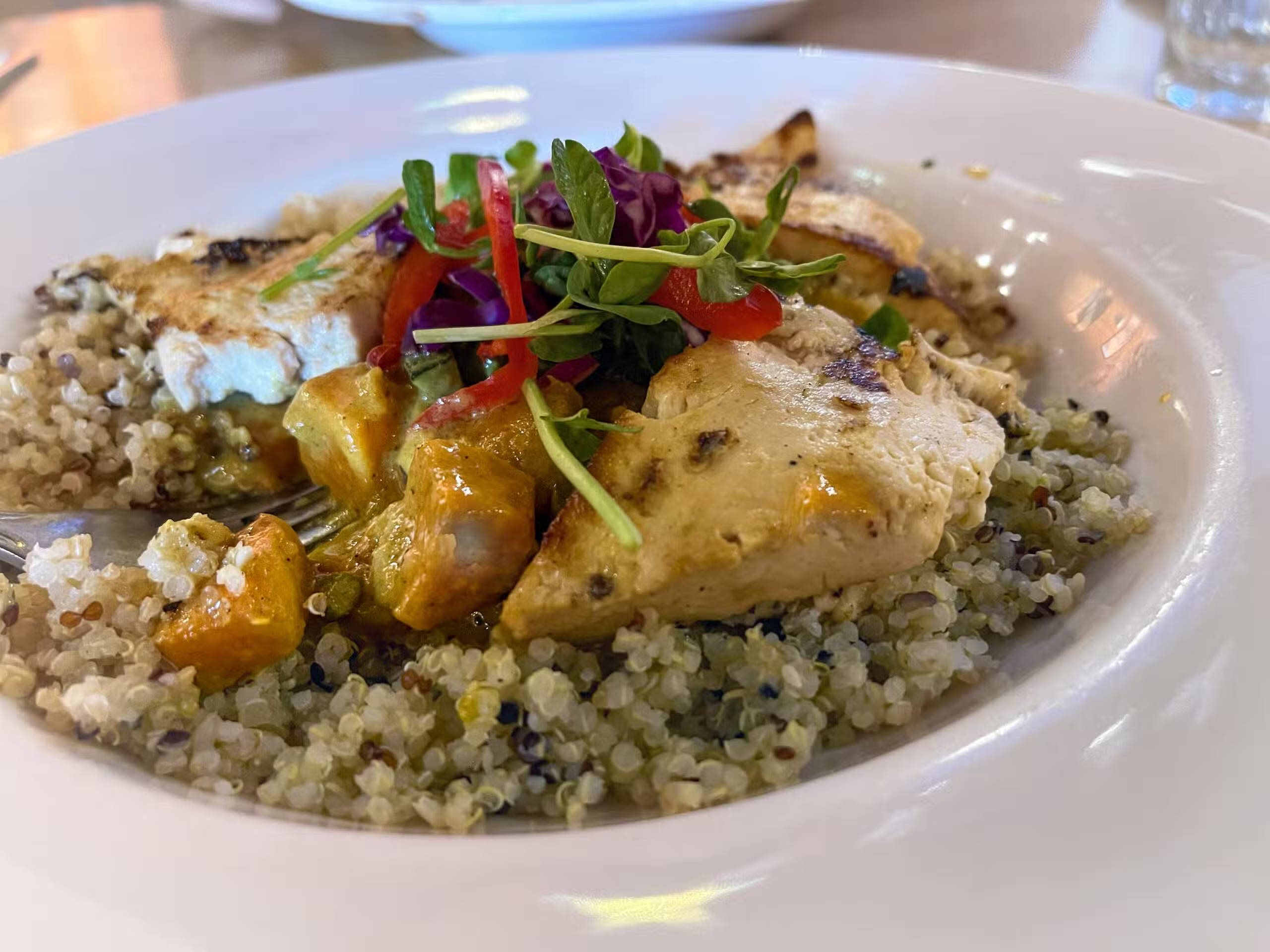In an emergency outdoor survival situation, three essential imperatives stand paramount: Stay warm, stay dry, and stay in place. Staying warm entails the vital task of starting a fire, providing not only warmth but also a means of signaling for help and preparing food. Next, staying dry becomes imperative, achieved through the protection offered by a lightweight poncho against rain, snow, and wind-chill. By preserving body heat and preventing moisture from seeping in, the poncho ensures survival against hypothermia and exposure-related risks. Finally, staying in place emerges as the cardinal rule if injured or lost, conserving energy and increasing the likelihood of being located by search and rescue teams. In the face of adversity, these three fundamental directives—staying warm, staying dry, and staying in place—serve as guiding principles for survival, reminding outdoor adventurers of the critical importance of preparedness and resourcefulness in challenging circumstances. For day hikers venturing into the great outdoors, preparation is key to ensuring a safe and enjoyable experience. While the allure of nature's beauty beckons, it's crucial to acknowledge the potential risks and uncertainties that come with outdoor exploration. In the event of an emergency, being equipped with essential items can mean the difference between survival and adversity. Among the myriad of gear options available, day hikers should prioritize carrying a select few items tailored to address critical needs. These include something to start a fire, providing warmth and signaling capabilities; a lightweight poncho to protect against the elements; electrical tape for versatile repairs; and a trusty pocket knife for various cutting and crafting tasks. While countless other items could be added to this list, day hikers must strike a balance between preparedness and practicality, as carrying too much gear can weigh them down and impede their mobility on the trail.
Stay Warm
Carrying a reliable fire-starting tool is essential for safety and survival during a day hike, providing warmth, cooking capabilities, and a means of signaling for help if needed. Of the three options—matches, butane lighter, or flint and steel—the butane lighter offers unmatched convenience and reliability. Its compact size and ease of use make it a practical choice for hikers of all skill levels. With a simple flick of the thumb, a butane lighter produces a steady flame that can quickly ignite tinder and kindling, even in adverse weather conditions. Unlike matches, which can become damp or wind-blown, and flint and steel, which require practice and skill to use effectively, a butane lighter provides instant access to fire with minimal effort. Its consistent performance and ability to withstand various environmental challenges make it a valuable companion for any outdoor adventure, ensuring hikers can confidently start a fire whenever needed.
Stay Dry
Carrying a small, inexpensive, thin plastic poncho is a wise decision for emergency outdoor survival due to its versatility and effectiveness in protecting against the elements. This compact and lightweight poncho serves as a crucial barrier against rain, snow, and wind-chill, shielding the wearer from moisture and helping to retain body heat in inclement weather conditions. Additionally, the poncho can be utilized as improvised shelter in an emergency situation, providing temporary refuge from harsh weather or unexpected circumstances. Its waterproof and wind-resistant properties offer vital protection against hypothermia and exposure-related injuries, ensuring the safety and well-being of outdoor enthusiasts in challenging environments. The compact size and lightweight design make it easy to carry in a backpack or pocket, making it an indispensable item for any outdoor adventure or emergency preparedness kit.
Stay in Place
If you find yourself lost or injured in the outdoors, it's crucial to stay where you are for several reasons. Firstly, staying in one place increases the likelihood of being found by search and rescue teams. Moving around can make it harder for rescuers to locate you, especially if you're in a densely wooded area or rugged terrain. By staying put, you make it easier for searchers to narrow down their efforts and focus on a specific area. Secondly, staying in place conserves your energy and resources. Walking aimlessly in search of help can quickly deplete your energy reserves, especially if you're injured or disoriented. By staying where you are, you can conserve your strength and resources while waiting for rescue. Lastly, staying in one location makes it easier for you to signal for help. You can build a fire, create makeshift signals, or use signaling devices such as whistles or mirrors to attract the attention of rescuers. If you keep moving, you may miss opportunities to signal for help effectively. Overall, staying where you are if you're lost or injured in the outdoors significantly increases your chances of being located and rescued safely.
Electrical Tape
Carrying a small and light roll of electrical tape is invaluable for emergency outdoor survival due to its versatility and compactness. Unlike bulkier alternatives like paracord or duct tape, electrical tape offers a lightweight solution for fixing gear, securing shelter components, and wrapping injuries. Its adhesive properties allow for quick and effective repairs to torn clothing, damaged equipment, or broken tent poles. Additionally, electrical tape can be used to stabilize splints, secure bandages, and improvise emergency medical supplies in the event of an injury. Its flexibility and durability make it ideal for creating makeshift shelters, binding together branches or tarps, and reinforcing seams against wind and rain. Other useful items with similar versatility include zip ties, which can be used for securing gear, constructing shelters, and immobilizing limbs in emergency situations. Together, these lightweight and compact tools provide essential support for outdoor survival and emergency preparedness.
Pocket Knife or Multi-Tool (Small/Light)
Carrying a small, lightweight multi-tool or pocket knife is invaluable for emergency outdoor survival due to its versatility and practicality. In a survival situation, the knife or tool serves as a crucial instrument for cutting, creating, and fixing various essential tasks. Firstly, it enables the user to cut through vegetation for shelter construction, firewood gathering, and creating signaling devices. The sharp blade can also be used for preparing food, dressing game, and fashioning makeshift tools or weapons for hunting or defense. Additionally, the tool's other features, such as screwdrivers, can help repair gear, tighten screws, or assemble improvised shelters. The pliers or scissors may be utilized for tasks such as removing splinters, repairing clothing, or crafting fishing gear. Overall, a small multi-tool or pocket knife provides a compact and efficient solution for addressing a wide range of survival needs in the unpredictable wilderness, making it an essential companion for outdoor adventurers.
Food/Water
A small bottle of water purification tablets, or a small and light water filter can bring some peace of mind, should you run short of water on a day hike, or find yourself in an emergency outdoor survival situation. When faced with an outdoor survival emergency situation, such as being alone and injured or lost, the variables involved in living without food or water for several days can have significant implications for one's health and well-being. The body's ability to survive without food or water depends on various factors, including individual physiology, environmental conditions, and the severity of the situation. In general, a person can survive without food for several weeks, as the body can rely on stored energy reserves to sustain vital functions. However, prolonged fasting can lead to muscle wasting, weakness, and impaired cognitive function, posing serious risks to overall health. On the other hand, the body's need for water is more immediate and critical. A person can typically survive without water for only a few days, depending on factors such as temperature, humidity, and physical exertion. Dehydration can rapidly lead to symptoms such as dizziness, confusion, and organ failure, ultimately resulting in death if left untreated. In an outdoor survival emergency, being alone and injured or lost compounds the challenges of obtaining food and water. Injured individuals may be physically unable to forage or hunt for sustenance, while lost individuals may struggle to find sources of clean water in unfamiliar terrain. Furthermore, the psychological stress of the situation can exacerbate dehydration and diminish one's ability to think clearly and make rational decisions. Overall, the variables involved in surviving without food or water in an outdoor survival emergency underscore the importance of preparedness, resourcefulness, and resilience in overcoming adversity and ensuring a successful outcome.
Other Items Small/Light
Carrying essential items, even on a day hike, can be crucial for ensuring safety and preparedness in the outdoors. While the intention may be to enjoy a brief excursion, unforeseen circumstances can arise, underscoring the importance of being equipped with necessary gear.
Sunscreen and a hat provide protection against harmful UV rays, guarding against sunburn and heat-related illnesses.
Extra clothing layers, including a lightweight jacket or thermal base layers, offer insulation against temperature fluctuations, even in warmer months.
A compact first aid kit enables prompt treatment of minor injuries or ailments,
A navigation device, such as a map, compass, or GPS, aids in route-finding and prevents getting lost.
By keeping these essentials small, light, and easily portable in a day pack or clothing pocket, hikers can enjoy peace of mind, knowing they are prepared for any eventuality that may arise during their outdoor adventure.






